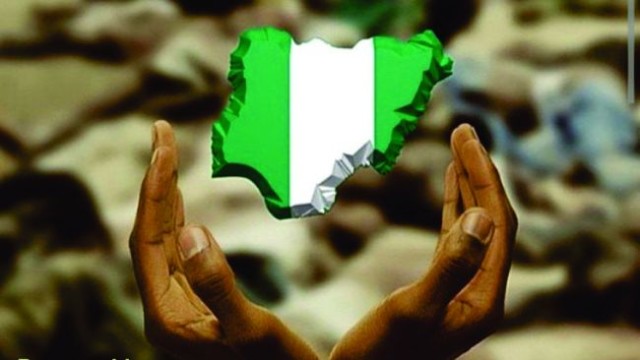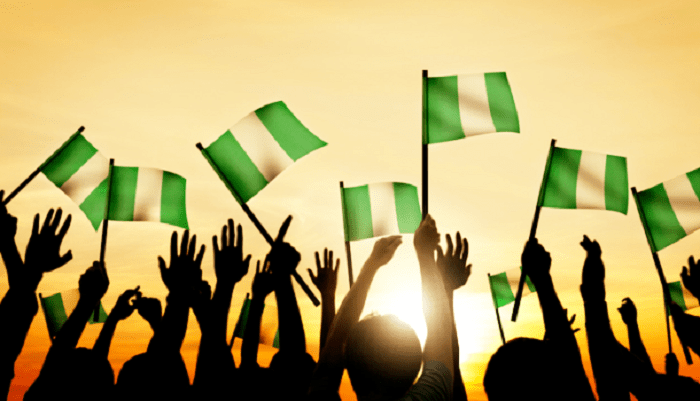By Olakunle Agboola – Nations are built by exemplary men and women, and sustained by institutions that promote good governance and thus socio-economic development.

History have it that the world used to be divided into empires and kingdoms but not in the modern times where, nations or nation states have replaced empires as the basic unit of human political organization. Nations just do not happen by historical accident; rather men and women with vision and resolute energy build them. Nation building is therefore the product of conscious statecraft, not happenstance. It is a dynamic process of constant nurturing and re-invention. Nation building never stops and true nation-builders never rest because all nations are constantly facing up to new challenges.
Nation building has many important aspects. Firstly, it is about building a political entity, which corresponds to a given territory, based on some generally accepted rules, norms, and principles, and a common citizenship. Secondly, it is also about building institutions, which symbolizes the political entity – institutions such as a bureaucracy, an economy, the judiciary, universities, a civil service, and civil society organizations. Above all else, nation building is about building a common sense of purpose, a sense of shared destiny, a collective imagination of belonging.

In Nigeria, however, some people represent our national importance by calling us the ‘Giant of Africa’. This is an ascriptive perspective. We are seen as giants not necessarily because of the quality of our national institutions and values, but simply by the virtue of our large population and oil wealth. However, in reality, the greatness of a nation has to be earned and is not determined just by the size of its population or the abundance of its natural resources.
In today’s world, skills, industriousness, productivity, and competitiveness are the determinant factors of national greatness. Not even the possession of the nuclear bomb is enough to make a nation great without reference to the industriousness and creativity of its citizens. Since the time of Adam Smith, every serious nationalist and politician has come to know that the wealth of a nation is not based on the wealth and opulence of its rulers, but on the productivity and industriousness of its citizenry.
The real question is why has the task of nation building been so difficult in Nigeria, and the fruits so patchy, despite our enormous human and natural resources?
This is a call to think question as we challenge our thoughts, and education to give reasonable answers. It is a great concern if our enormous natural resources cannot revitalize the life of the citizen or convert their desert abode into a beautiful home of prosperity.
Regionalism remains one of the major challenges to nation building in Nigeria. Our founding fathers tried to deal with this challenge by adopting federalism and advocating a policy of unity-in-diversity. Unfortunately, the lack of consolidation of Nigerian federalism, commonly shared values and positions mean that this challenge of divisive historical legacy continues to undermine our efforts at nation building. One current manifestation of this historical legacy is the division between ‘indigenes and settlers.’ This division has been a source of domestic tension and it has undermined our efforts at creating a common nationhood. While we should learn from history so as not to repeat its mistakes, we must never see ourselves simply as victims of our history; it is our responsibility to overcome the challenges posed by our history.
The Challenge of Socio-Economic Inequalities has also plagued our definition of Nation building. Many of our citizens are denied their basic rights such as the right to education and health. Also, there is serious variation in the enjoyment of these rights across the country. Consequently, the citizen is not motivated to support the state and society, because he or she does not feel that the society is adequately concerned about their welfare. Socio-economic inequalities across the country fuels fear and suspicions which keep our people divided.
A largely marginalized citizenry, increasingly crippled by poverty and the lack of basic needs, can hardly be expected to play its proper role in the development of the nation. Nations are built by healthy and skilled citizens. On grounds of both equity and efficiency, we need to promote the access of the bulk of the Nigerian population to basic education, health, and housing. Nigeria needs a social contract with its citizens as a basis for demanding their loyalty and support.
One of the greatest challenges of nation building is the challenge of institution building. Whether nations are able to manage their political and social disputes peacefully, without lapsing into conflict, or sustain economic growth without creating huge inequalities, critically depend on the quality of the relevant national institutions. Nigeria needs to create or strengthen institutions that would help achieve the national goals of democratic governance and sustainable development. It is generally believed that Nigeria do not need a strong leader to make a change but a strong institution where systems and processes are strengthened.
Leadership is a critical factor in nation building. Nigeria is suffering from bad leadership, which is a major challenge for nation building. We do not need leaders who see themselves as champions of only some sections of our population. We do not need leaders who do not understand the economic and political problems of the country, not to talk of finding durable solutions for them. We do not need leaders who are more interested in silencing their opponents, than in pursuing justice. We do not need leaders, who preach one thing, and do the exact opposite. We do not need leaders who place themselves above the constitution and the laws of the country, but leaders who lead by upholding and respecting the law. We do not need leaders who have no sense of tomorrow, other than that of their private bank accounts.
Leadership is not everything, but it is an extremely important factor. Unless we have leaders with ability, integrity, commitment, and vision, we cannot succeed at nation building. Therefore, we must not relent in this struggle for quality leadership, as it is the key to building our nation.
Men and women, who have the will and vision to accomplish greatness, not for themselves, their immediate families and friends, but for their country, build Nations. If we can find the will to offer such leadership, and support it by strong and dependable political and economic institutions, Nigeria will find a way to her greatness.
Kindly follow us on twitter:@AfricanVoice2









